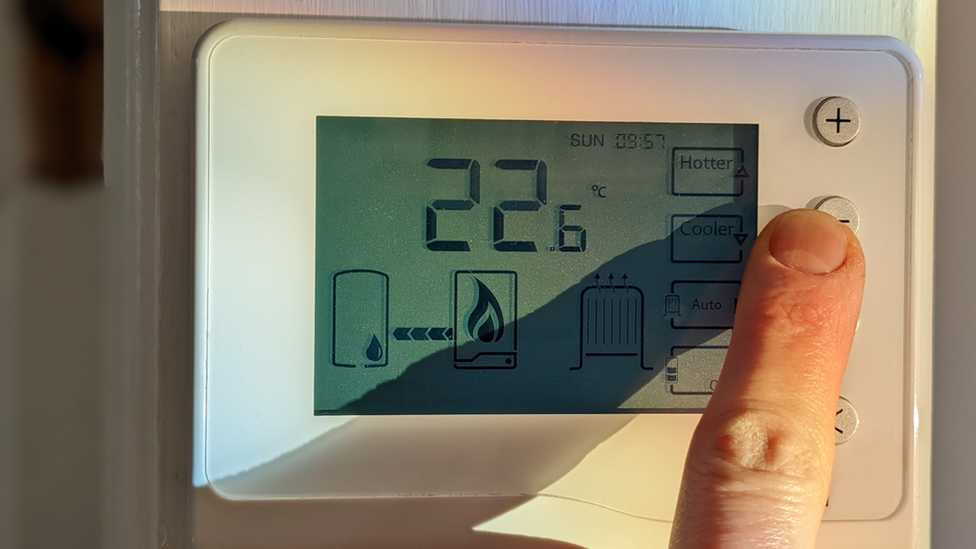Government to share energy-saving tips in TV ads
- Published
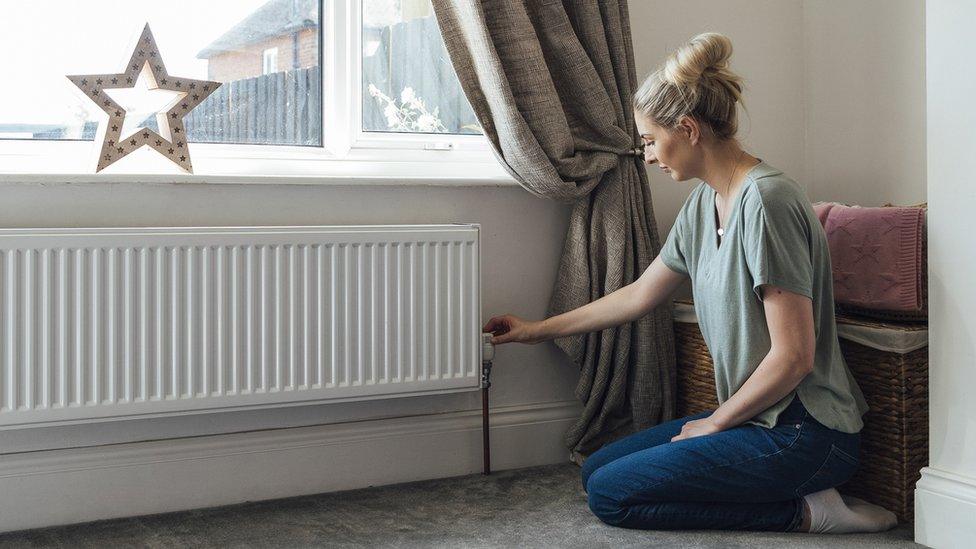
The campaign will feature adverts promoting ways to reduce energy consumption and lower bills
The UK government will promote energy-saving tips in adverts on TV and at bus stops as part of an information campaign due to be launched this week.
The campaign will feature ads with the strapline "It All Adds Up" and a new website with advice such as turning down boilers.
Business Secretary Grant Shapps is expected to be involved in messaging to help households reduce energy use.
The government estimates the campaign will cost taxpayers about £18m.
The new website is expected to go live on Saturday before adverts on TV, radio and on the sides of buses appear after Christmas.
A government source said they were keen to get Mr Shapps out doing interviews and possibly recording videos for promotion on social media.
The source said the campaign will be pushed out on government social media channels and "we'll try to get energy-saving networks such as Which? and energy companies to help get it to as wide an audience as possible".
One of the main focuses will be encouraging households to lower their boiler-flow temperature to 60C in order to save an estimated £100 a year.
Other advice will include turning off appliances at the plug when they are not in use, and draught-proofing windows and doors by putting blankets under them.
The campaign, designed by the Department for Business, Energy and Industrial Strategy (BEIS), is part of the government's push to curb energy use during the cost-of-living crisis.
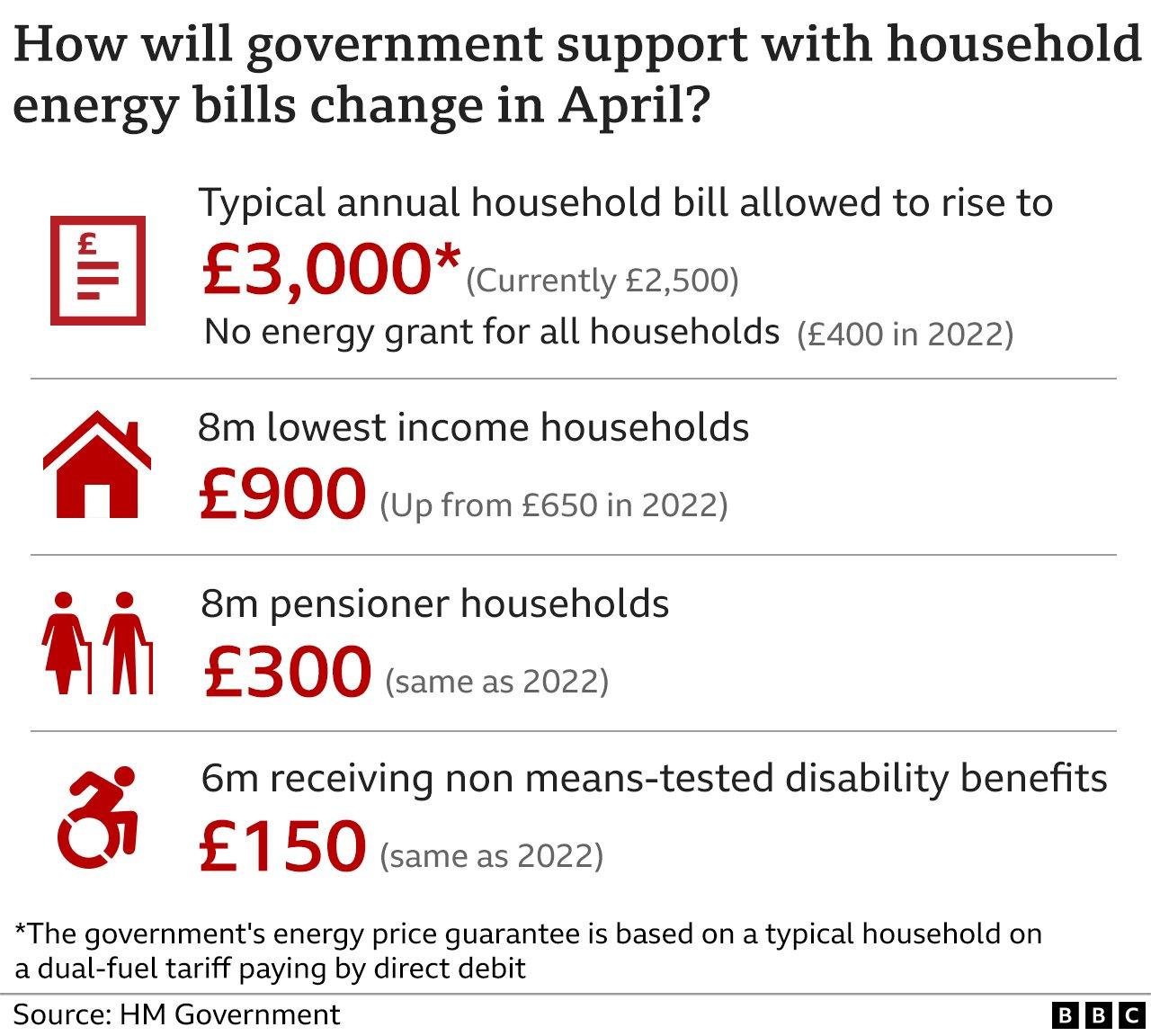

Prime Minister Rishi Sunak's approach has differed to that of his predecessor, Liz Truss, who was reported to have been "ideologically opposed" to an energy-saving a campaign.
But her government changed tack and said it was considering how to expand the existing Help for Households website.
One government source said the campaign being launched this weekend was an extension of that website.
The Help for Households website, external includes actions such as turning down radiators not in use to save an estimated £70 per year.
The government has capped the amount per unit of energy suppliers can charge consumers so that a typical bill remains at £2,500 a year until the end of March.
But help with energy costs will be less generous from April, with bills for a typical household going up to £3,000.
Chancellor Jeremy Hunt has described cutting energy use as a "national mission" to stop the UK being "blackmailed" by the likes of Russian President Vladimir Putin.
The war in Ukraine has tightened supplies of gas, which the UK is heavily reliant on for heating and powering its homes and businesses.
Mr Hunt said "in the end everyone is going to have to take responsibility for their energy bills" and consider how to cut their consumption.


Related topics
- Published24 November 2022
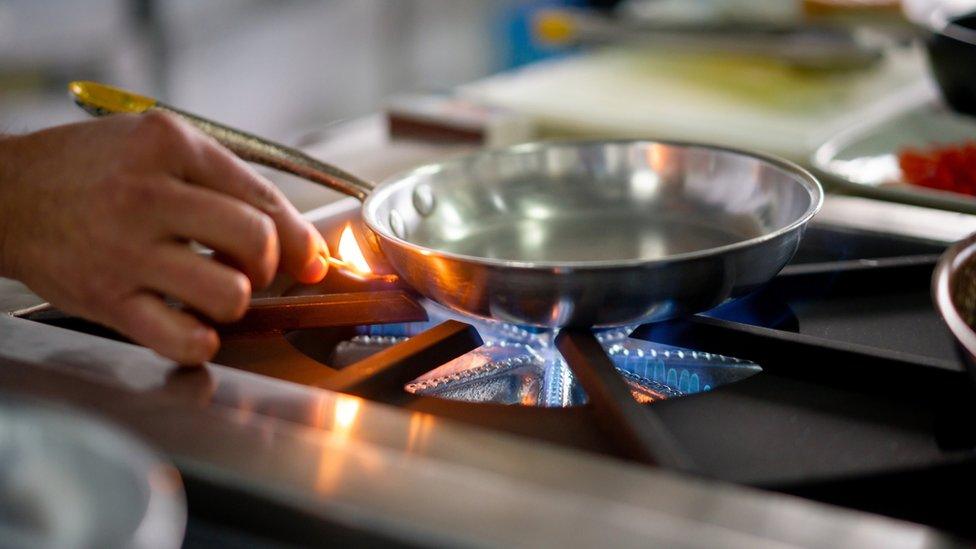
- Published29 November 2022
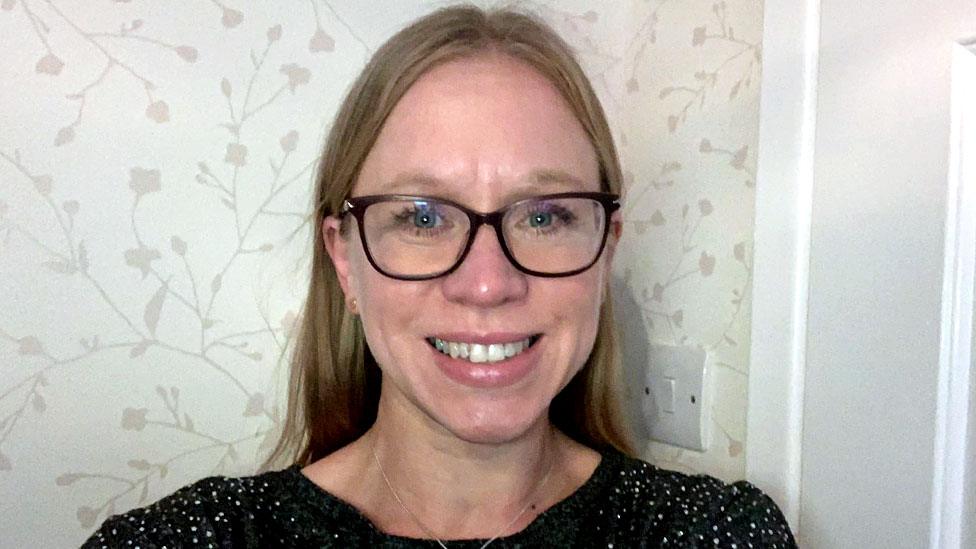
- Published27 November 2022
